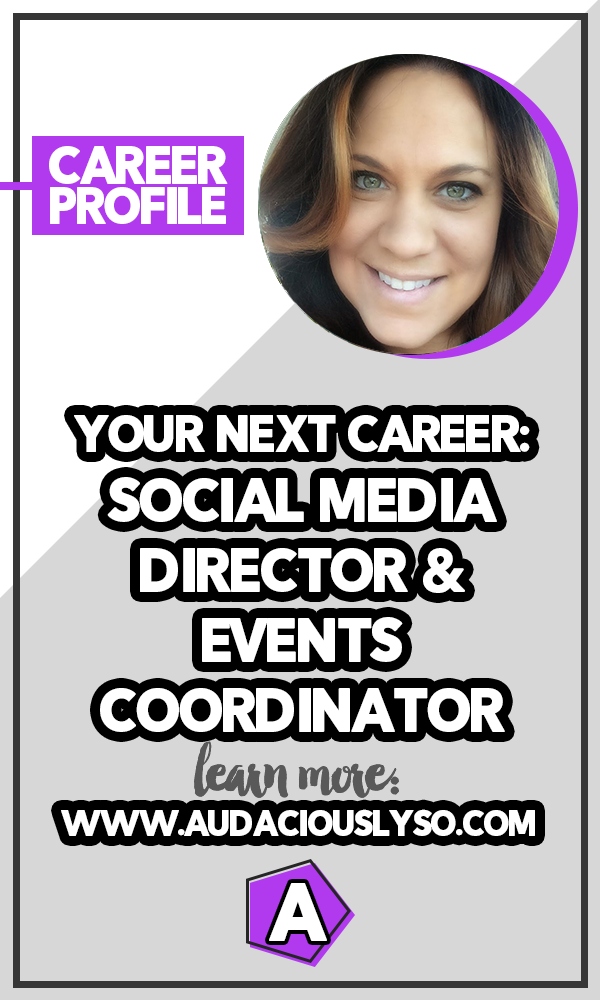"This is a mistake."
That's what I was thinking the first day of my new job, before I had even stepped foot in the building.
Now, if you've ever lived in a city or taken public transportation to work, please don't read what I'm about to say. (I don't like people laughing at me.) But for those of you who, like me circa 2013, are completely unfamiliar with city life, let me tell you this:
You don't wear your work shoes during your morning commute. And you especially don't wear your work shoes during your morning commute if it's March and you live in Chicago.
Unfortunately, I didn't know this the day I started my first job in Chicago in 2013, which led to me standing in front on my new office in a soggy pair of heels. And even more unfortunate was that this was only the tip of the iceberg.
As a recent graduate from a small Maryland suburb, whose job history consisted of "research laboratory technician" and "Italian ice scooper," I didn't know the first thing about living in a city, commuting in a city, or being a paralegal in a city law firm.
Frankly, I was young, stupid, and had very cold, wet, blistered feet.

But before I go on about my feet, I should back up and explain how I got to Chicago to begin with.
You see, immediately after graduating college, I started my first job in a research lab in a small Florida town. My first employer was amazing, and I learned a lot... including the fact that I really, really don't like working in labs.
So about a year after I graduated, I packed up everything I owned and moved to a city where I had never been and where I knew no one, to start a job I knew essentially nothing about.
You see, I had found this thing called "patent law" online a few months earlier, and it sounded fantastic. I quickly decided I wanted to be a patent agent, which involves science, writing, and arguing, and best of all, you don't have to wear protective lab goggles.
The problem was that I had no experience in law, patent or otherwise.
So I came up with a plan: I would get a job in a patent law firm as a paralegal, learn as much as I could while I studied for the Patent Bar Exam (the test you have to pass to be a patent agent), and then use my law firm experience and passing test score to land a job as a patent agent.
Sounds like a solid plan, right?
But as good as a plan as I thought it was, I also wanted a second opinion. So while I submitted my resume in response to every patent paralegal job listing I could find (including a few random listings for jobs in faraway cities like Chicago), I also scheduled as many informational interviews with patent law professionals as I could.
As I would later learn, the connections I made during this time would become incredibly important to my career. But these informational interviews also almost stopped me from pursuing patent law altogether.

You see, after talking to a handful of people in the field, I started getting discouraged. Most of the people I talked to had a master's degree or a law degree, neither of which I had. Some had both, and some threw on a Ph.D., just for fun. Everyone had years of experience and had already passed the Patent Bar Exam, and almost all of them told me that my plan to patent agent-hood frankly would never work.
There is a certain way things are done, after all, and my way was not that way. No one goes from paralegal to patent agent, especially so young. Have you thought about law school?
So when I finally got a call back about an entry-level paralegal job in a Chicago, I was hesitant. And when I got the job, I was downright doubtful.
I mean, the thought of leaving for Chicago was terrifying. I didn't know anyone in Chicago, had never even been to Chicago, and had sold my winter coat months ago. I also had a boyfriend, apartment, and job with benefits in Florida.
It seemed like a lot to risk for a plan that people said would never even work.


I'd like to say that I believed in myself enough to confidently and courageously pack up my things with "It's My Life" jamming in the background. But that'd be a lie. A huge part of me thought, "There's no way I can do this."
I decided to go anyway though and give the plan a shot, even if it wasn't a sure thing and even if I didn't quite know what I was doing. Which led me to the beginning of this post, a new Chicago transplant standing ankle-deep in a melted snow puddle in my fancy new office heels.
But you know what? A day later, I got on my bus wearing snow boots. And a couple years later, I got on a plane to Washington, DC, where I would be starting a new job.
Becuase although it took a little improvision along the way, my plan worked. I was a patent agent.
The moral of this story is that plans are great, and good plans are even better, but sometimes you just have to go for it, even if you're not quite ready. Even if you don't know exactly what you're doing and even if other people think you're wrong, sometimes it's better to just start the thing anyway.
Because you just might surprise everyone—including yourself—with what you accomplish.
(The second moral of this story is don't wear heels on public transportation, especially in the winter. Seriously, just trust me on this one.)

Have you ever done something for your career you were unsure about? Did it pay off?



















